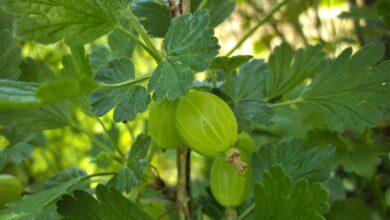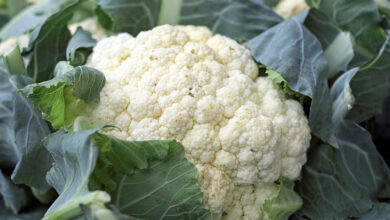Mint: Health Benefits And Side Effects

Mint is used not only in nutrition, but also in the manufacture of creams, toothpaste, perfumes and soaps. All thanks to its unique aroma.
In medicine, mint acts as a sedative, a remedy for headaches, and for vision problems. Mint teas and essential oils are popular. This plant is one of the most used in the world.
We found out what are the benefits and harms of mint for the human body.
The History Of Mint In Nutrition
The Assyrians were the first to use mint as a medicine: it helped with headache, toothache and stomach pain. The ancient Romans sprinkled the rooms with a decoction of mint: it cheered up, refreshed the room.
Both the Romans and the Egyptians added mint to their dishes as a condiment. Grass gave the food not only a characteristic taste, but also a bright aroma.
Mint is widely used in medicine for the treatment of various diseases. Its beneficial properties are explained, first of all, by the content of menthol, an essential oil that gives the plant a characteristic recognizable smell. Mint is used both topically and taken orally.
The Composition And Calorie Content Of Mint
The main component of mint is menthol, which is found in the essential oil of the leaves. It has anti-inflammatory and disinfectant properties. The plant contains a lot of manganese (more than 50% of the daily requirement), copper and vitamin C.
Mint is rich in vitamins A, C, B vitamins, it contains many trace elements: potassium, calcium, magnesium, manganese, zinc, iron, phosphorus. Including the plant in the diet, you can overcome some infectious diseases.
Mint is also rich in amino acids: lysine, alanine and glutamic acid. One of the varieties of this plant, spearmint, contains a large amount of carotene, which stimulates the brain.
| Mint calories per 100 g | 44 kcal |
| Squirrels | 3.29 g |
| Fats | 0.73 g |
| Carbohydrates | 8.4 g |
The Health Benefits Of Mint
No wonder the ancestors of the Dali believed that mint prolongs life. The concentration of nutrients makes this herb an assistant in the prevention and treatment of many diseases.
Peppermint contributes to the improvement of cognitive functions in young people. The positive effect of mint extract on the brain function of people aged 50 to 70 years who suffer from memory problems has been proven.
Peppermint infusion or peppermint tea helps reduce headaches due to the presence of menthol in the composition – often such pain is caused by intense tension. The plant is relaxing and soothing.
Another plus of mint: it relieves nausea, vomiting and dizziness. It is used for toxicities of pregnant women and seasickness. The plant helps relieve spasms and soothes the gastrointestinal tract.
The Side Effects Of Mints
Mint should not be consumed while breastfeeding. Menthol can reduce the ability of the female body to produce milk.
It is also necessary to exclude mint for those who suffer from varicose veins or low blood pressure. If vascular tone decreases, the likelihood of an exacerbation of a chronic disease becomes higher.
But mint causes pronounced harm only if a person is allergic to this plant.
The Use Of Mint In Medicine
In addition to the main treatment, mint is prescribed for disorders of the nervous system to relieve tension and relaxation. It helps with insomnia, but also only as part of therapy.
The plant relieves inflammation and is a natural antispasmodic, reduces gas formation in the intestines. With increased acidity of the intestine, peppermint helps, which reduces the production of hydrochloric acid. With low acidity, field mint is preferred.
Mint has anti-inflammatory properties that allow it to be used in the treatment of bronchitis, tonsillitis, runny nose. The plant is also beneficial for the digestive system. It can also be used to relieve stress, it is a mild natural sedative. Mint is used for headaches, nasal congestion, and chronic pancreatitis. Helps strengthen the cardiovascular system, and has antibacterial properties.
Mint is considered a natural mucolytic. The herb thins phlegm, making it quick and effective. Drinking mint tea is recommended not only for a wet cough, it helps to alleviate all the symptoms of a cold. Mint contains quite a lot of vitamin C and other trace elements.




